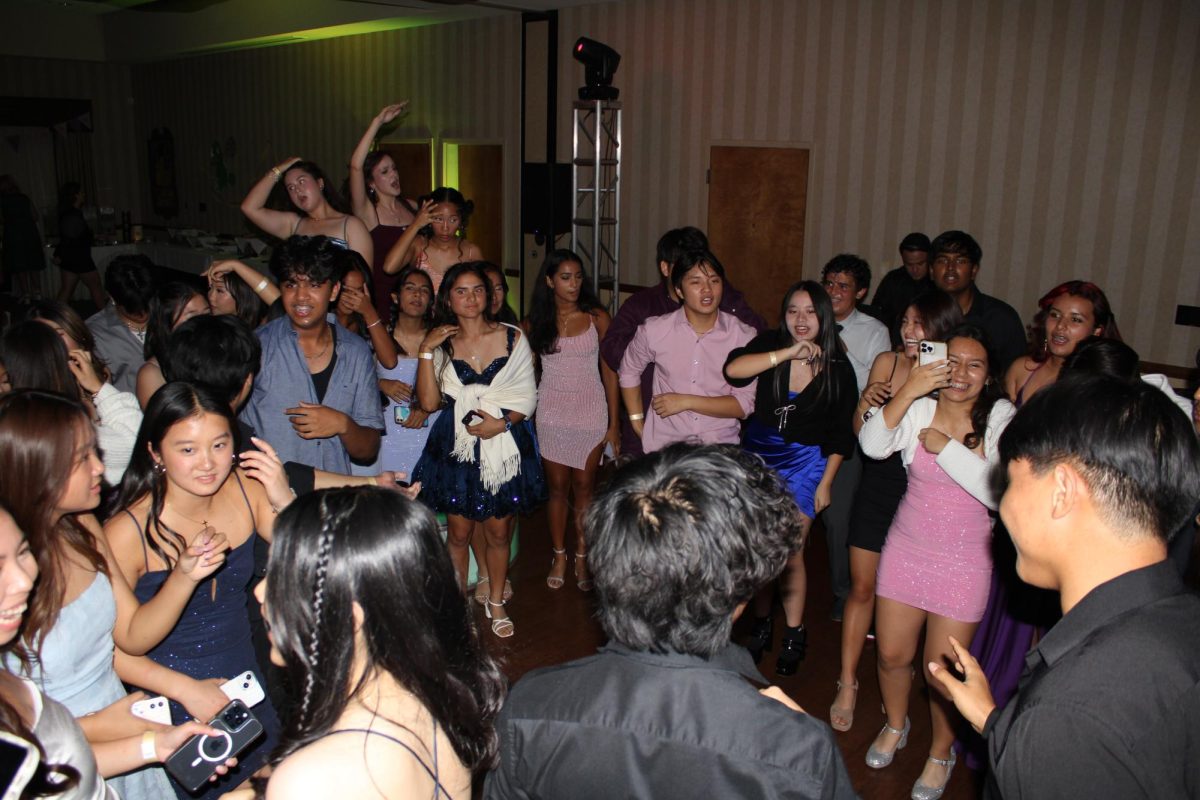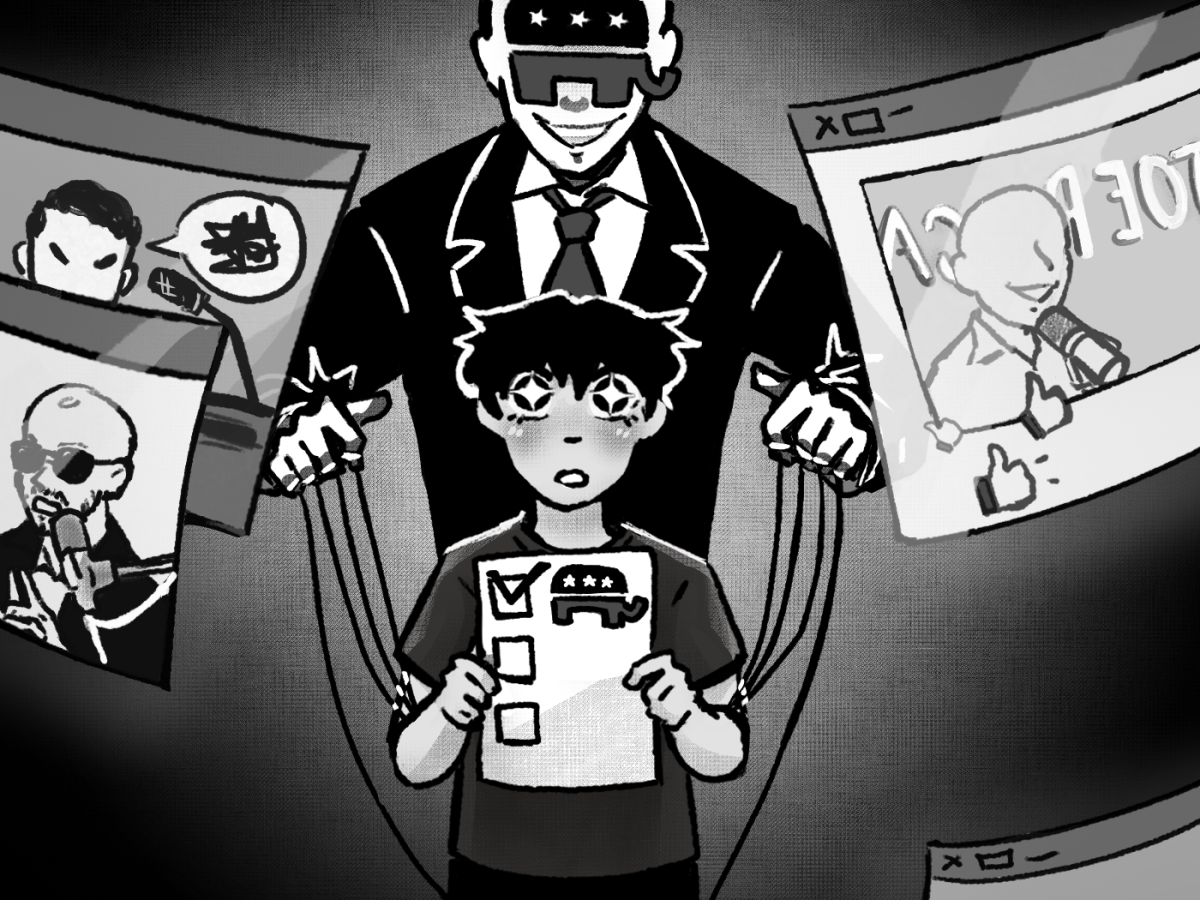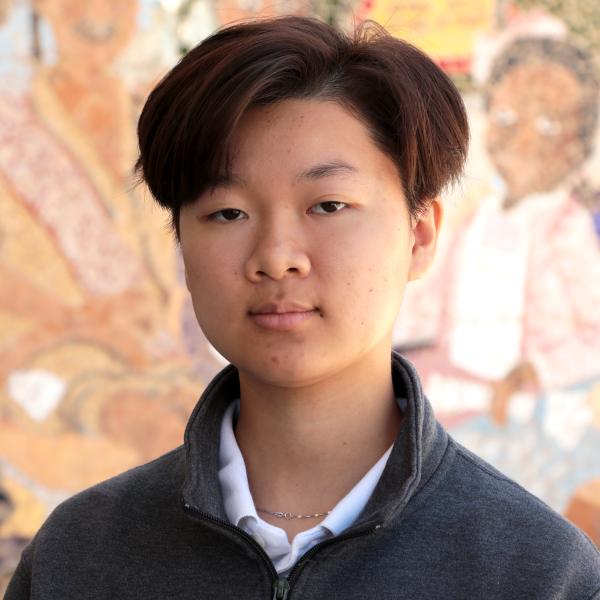Right-wing media, correlating with conservatives and the Republican party, has become more prevalent leading into the 2024 election, influencing male youth dramatically. In the status quo, numerous social media influencers and celebrities propagate right-wing ideology, radicalizing young men listening. Right wing’s media oversaturation has unethically skewed young male consumers right, due to a lack of male models in the left wing sphere, poor media literacy, and propaganda preceding unbiased information.
“Trump’s lead was the most dominant among unreliable male voters younger than 40. These young men didn’t get their news from mainstream media. When they did interact with politics, it was mostly through edgy bro podcasts and social media,” Eric Cortellessa said to Time Magazine.
Poor media literacy influences social media influencers’ impact on their followers; media easily becomes a source of propaganda and a tool to spread bias.
Compared to the numerous male far right-wing influencers dominating social media like Ben Shapiro, Joe Rogan, and even Andrew Tate, the distinct lack of left-wing role models for male youth online is clear, creating feelings of alienation from leftist discourse. Without visible alternatives on the left-wing similar to them, many male youth believe right-wing figures are the only voices speaking to their dreams and aspirations, resonating with these activists. Many young male voters are pushed radically right, as they mistake this representation as understanding and supporting the right-wing activists’ political ideas without gaining a firm understanding of both sides of the debate. With influencers such as Andrew Tate, without accessible role models challenging his promotion of toxic masculinity, many young men defaulted to adopting his ideals.
Furthermore, poor media literacy influences social media influencers’ impact on their followers. Media easily becomes a source of propaganda and a tool to spread bias; where the right-wing social media influencers may just be expressing their personal opinions and ideas, the listeners could interpret or misunderstand them as something purely factual and take the direction of the message incorrectly. Without thorough outside research to form understandings and opinions on these political issues, these men easily form their opinions purely based on influencers’ personal views.
While right-wing social media influencers are entitled to share their political opinions, it cannot be ignored that some of these content creators may be simply using their platforms to blatantly spread misinformation to continue to build their following, prioritizing internet fame and profit opposed to balanced political information. Influencers who do this get away with it because of the lack of refutation from left-wing representation. For better literacy and understanding of the political world’s issues, social media platforms should also take accountability for managing these accounts.
With this skewed influence of bias prevalent among young men, it is essential that media literacy increases among the consumers of social media and that there be more male left-wing models and representation to balance the playing field.




























































